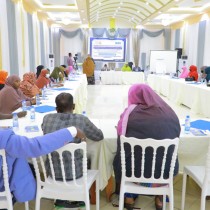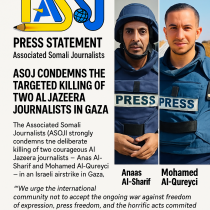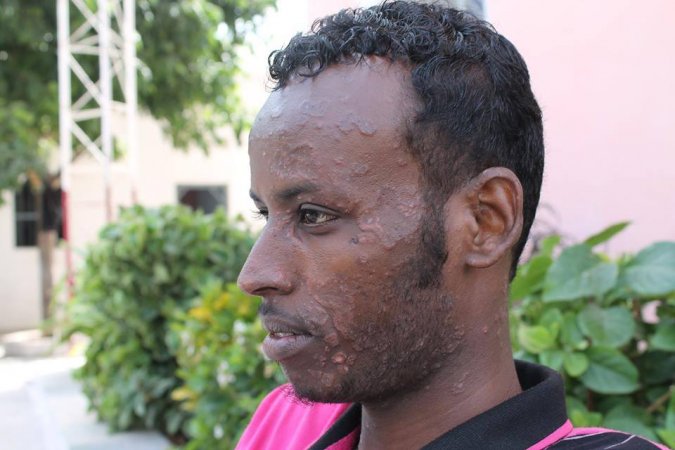
Why press freedom and end to FGM are related in Somalia.
ASOJ.ORG - Press freedom and female genital mutilation (FGM) may be unrelated issues around the world but in Somalia, stakeholders think achievement of one will depend on the other.
On Sunday, as the world marked the International Day of Zero Tolerance for FGM, the two issues converged in Mogadishu, with stakeholders saying eliminating the scourge of FGM will largely depend on how journalists can freely and accurately report about it.
Somalia performs poorly when it comes to defeating FGM, and attaining press freedom.
In Africa, it is considered one of the most dangerous countries to work as a journalist, according to annual data from the Reporters Without Borders (RSF), a global lobby for press freedom.
And when it comes to FGM, nine in every ten women in Somalia, aged 15-49, you meet have undergone it, forcibly, according to the United Nations Population Fund (UNFPA), the global agency that tackles sexual and reproductive health.
A study by UNFPA found that most of the affected girls in Somalia were aged five to nine and that up to seven in every ten women in the country falsely believed it was an Islamic requirement to get the horrid cut.
stakeholders generally agreed there has to be more awareness on FGM.
"By advocating to end FGM, and by having access to community members, survivors and those intimately involved in the practice, journalists can report on the complexity of the issue with sensitivity and clarity, ensuring diverse voices are heard.
The UN agency said it was also giving protection to women and providing care to those who have undergone it, seeking to lessen the blow in a country that has yet to enact a law against FGM, even though leaders generally do not condone it.
"Female genital mutilation harms the lives and futures of young girls and women. It is a violation of rights to bodily integrity and freedom from torture,” said Anders Thomsen, UNFPA’s Country Director for Somalia.
One area of focus, Thomsen said, was working with civil society groups and government officials to mobilise "political pledges, positive role modelling and action to end FGM.”
"Religious leaders, families, communities, women, men, girls and boys are committing through personal pledges, positive role modelling and action to end FGM in Somalia. However, there is a need to sustain and accelerate advocacy and community action so as not to lose the gains made so far. Only united and concerted action can end FGM.”

 0
0 



























Why press freedom and end to FGM are related in Somalia.
ASOJ.ORG - Press freedom and female genital mutilation (FGM) may be unrelated issues around the world but in Somalia, stakeholders think achievement of one will depend on the other. On Sunday, as the world marked the International Day of Zero Tole